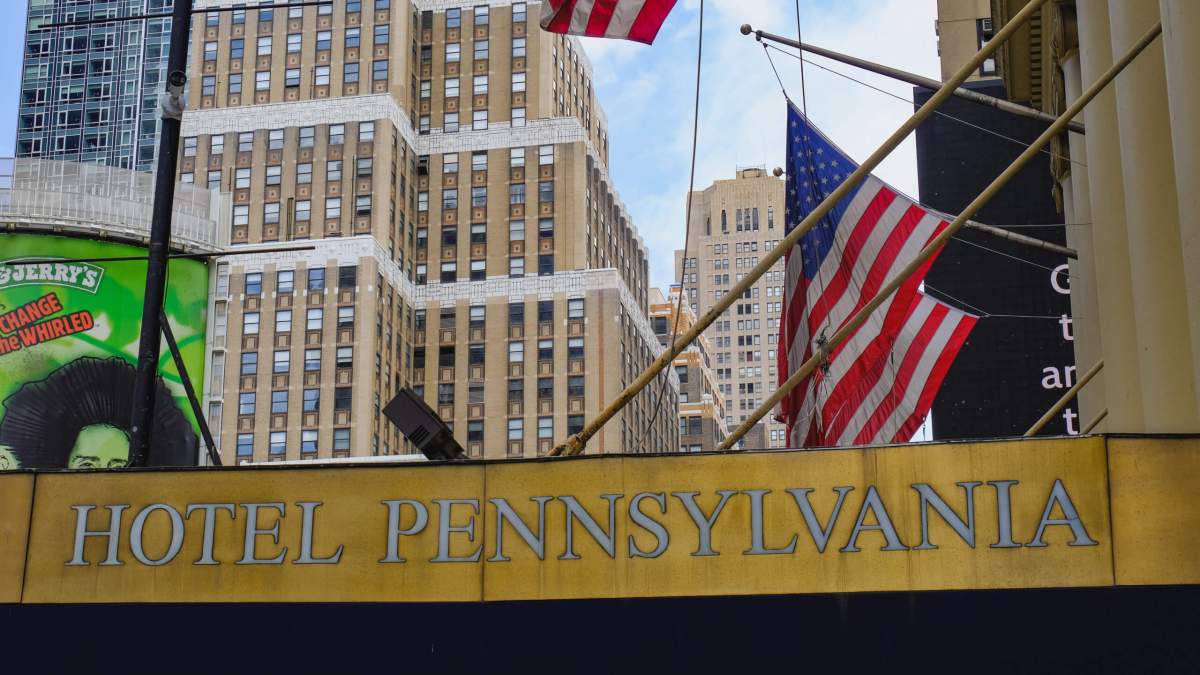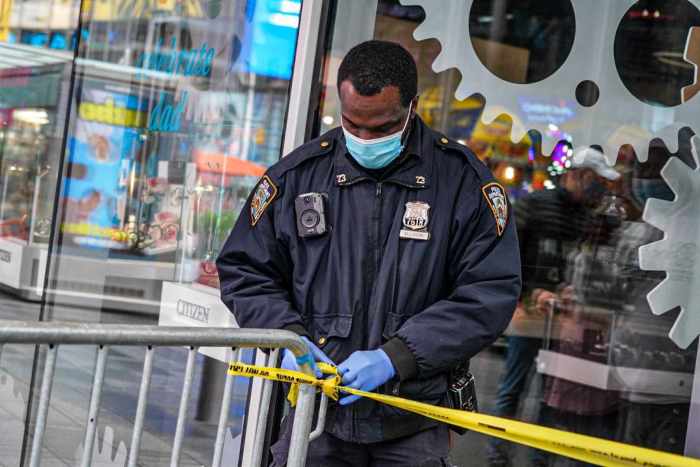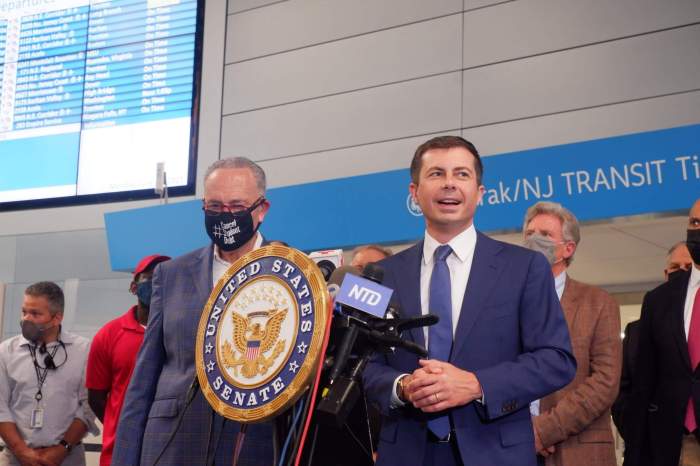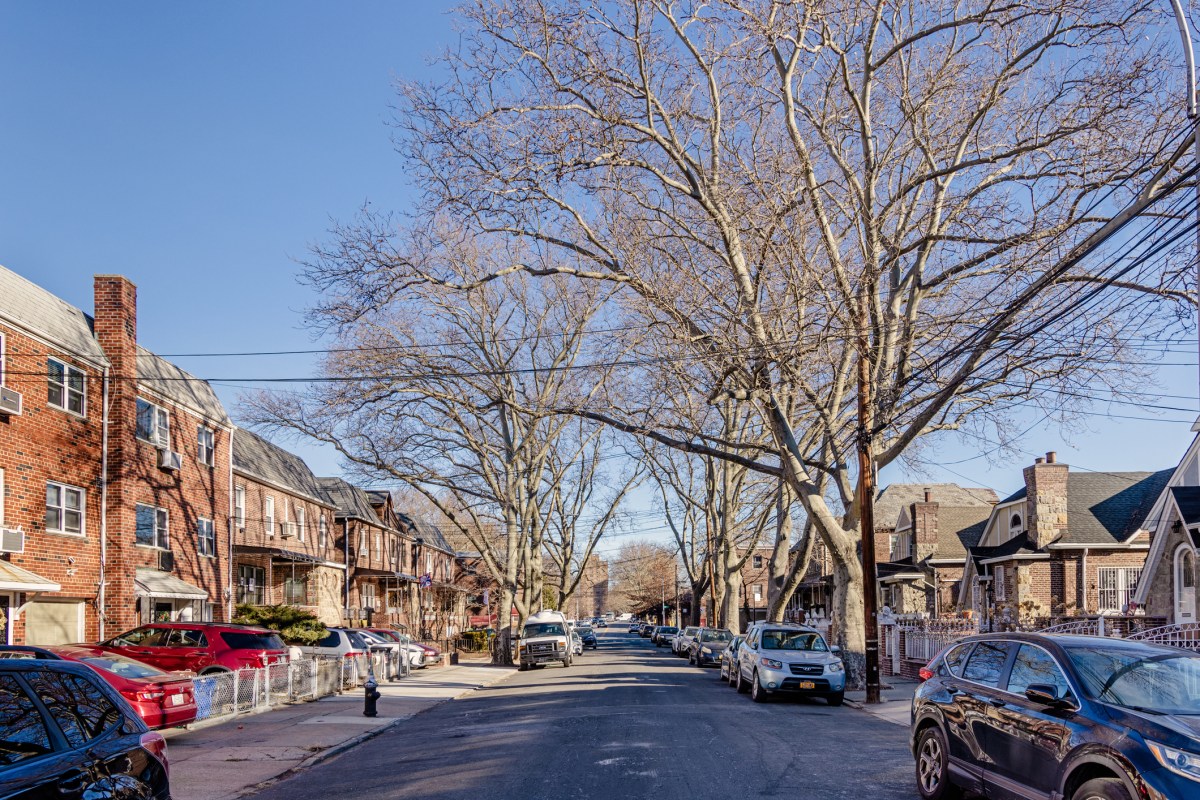Economic development groups, including the Hotel Trades Council, issued letters for Governor Kathy Hochul to proceed with redevelopment of the Penn Station district and supported the demolition of the Hotel Pennsylvania.
While opponents to the Cuomo-era plan have pleaded the cause of preserving what they see as historic structures in Midtown, The 34th Street Partnership, the New York Building Congress and the union say there is no path in any direction but forward with the Empire Station Complex.
“It’s critical that we show residents and commuters that we are ready to welcome them back. Yet our aging mass transit infrastructure, which stalled commutes before March 2020, will still be there as people head back to the office,” wrote Carlo Scissura, president of the Building Congress, in a letter. “Penn Station is the busiest commuter hub in the nation, and its strained infrastructure and inefficient systems have long caused chronic congestion and delays. It wasn’t designed to carry 600,000 daily commuters. To make matters worse, commuters exit their train into a dark, cramped subterranean station that does nothing to brighten anyone’s mood.”
Despite up to two decades of activism to save the Hotel Pennsylvania, Hotel Trades Council AFL-CIO President Richard Maroko said in his statement that it’s time for the 100-year-old structure to make way for something new.
“The Hotel, which is part of the Project, is closed and we are informed that there are no plans to reopen it, meaning that its employees have little prospect for re-employment. However, we have negotiated an agreement with Vornado, the owner of the Hotel, which provides real opportunities for those employees should the Project proceed,” Maroko said. “Under the agreement, Vornado will make significant payments to employees to help them during their period of unemployment and offer them jobs in the new hotels Vornado intends to develop in the Project, as well as offer preferential hire in other buildings owned by Vornado. Because of this agreement, the Union believes that the workers we represent from the Hotel are protected and that the Project will provide them additional opportunities.”
Opponents to the demolition of the building at 401 7th Ave., which has 2,000 rooms, have appealed to the Landmark Preservation Commission. Efforts which have been met with rejection as the agency, created after the destruction of the original Penn Station, has deemed the hotel in its current condition as not in the best interest of the city.
The Hotel Pennsylvania has made appearances in pop culture, but was heavily renovated over the years, and in September, demolition began.
Both the hotel and old Penn Station, destroyed in the 1960s to make way for Madison Square Garden, were designed by the legendary McKim, Mead and White.
Dan Biederman, president of the 34th Street Partnership, called for Hochul to move forward with few changes to General Project Plan in the interest of boosting the eventual rebound of the local economy for office workers who will benefit from having transit amenities so close new developments.
“This plan will transform the Penn District in a way that hasn’t been done for decades, by upgrading our mass transit system to ease congestion and boost circulation, improving pedestrian and vehicular flow, and providing a shot in the arm for private development to build new, more sustainable office buildings that will attract the world’s leading companies and talent,” Biederman said. “New York’s reputation must be rebuilt, and if we are going to continue as a global leader, we must demonstrate our capacity for innovation on sustainable infrastructure and economic recovery.”
While former Governor Andrew Cuomo made the Empire Station Complex a central facet to his 2020 and 2021 State of the State addresses, the Hochul administration has not released any changes to the project plan.
It includes the annexation of land to the south of the station, renovating the space that saw up half a million commuters per day before the pandemic, and the rights for developers to erect up to ten new skyscrapers, a ploy that will help fund the estimated $306 billion improvements.


































